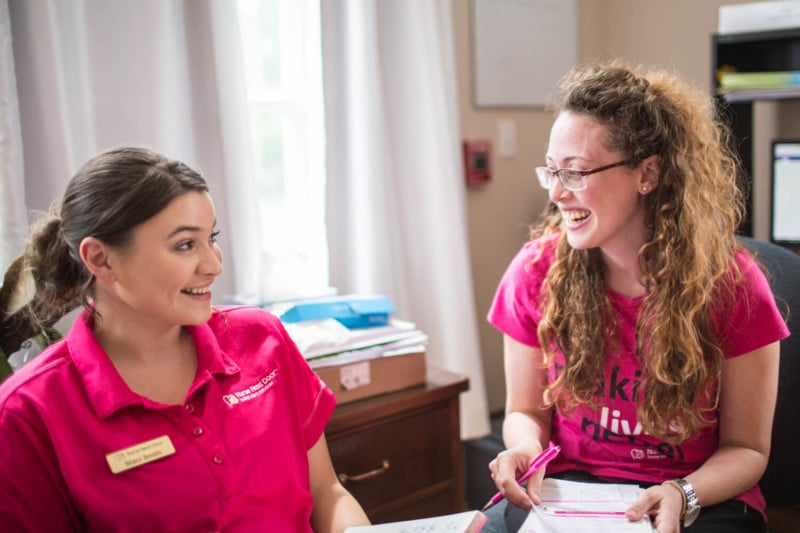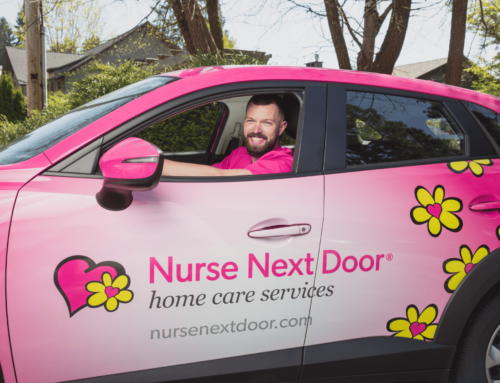When launching a home care business, it’s easy to focus predominantly on the business plan and financial investment. But remember, the caregivers you hire are just as critical, if not more so. The quality of your team can either elevate your home care agency to new heights or compromise its reputation. In the realm of home health care, your chosen caregivers play a significant role in shaping both the level of medical care and the emotional support offered to your clients. This comprehensive guide serves as your roadmap in caregiver hiring, equipping you with the crucial knowledge you’ll need to build a team that aligns perfectly with your business’s core mission and values.
Why the Right Caregivers Are Essential
The caregivers are essentially the backbone of any home care business. Their dedication and skills don’t just fill job descriptions—they also directly impact client satisfaction and, consequently, your business’s reputation. This section aims to illuminate why choosing the right caregivers, whether they are companion caregivers, personal caregivers, or home health aides, is pivotal to your long-term success.
In the competitive industry of in-home care, a reliable and highly skilled caregiving team can be your greatest differentiator. Whether you’re hiring specialized roles like certified nursing assistants or more general roles like companion caregivers, the quality of the hires must align with your business’s ethos and values. They offer more than just medical care; they provide invaluable emotional support and help with daily living activities. Your caregiving team becomes an integral part of your clients’ lives, often acting as secondary family members offering support services.
Identifying the Right Fit
Having highlighted the pivotal role your caregiving team plays in the success of your home care business, the next step is pinpointing what makes a great caregiver candidate. While the particular needs can vary—some clients may require advanced medical care, others may be more focused on companionship—the foundational traits and skills are universally important. Here, we’ll dissect these essential attributes, offering you actionable insights on how to evaluate potential caregivers effectively during your caregiver hiring process. Traits to look for:
Compassion
No one would dispute the importance of technical skills in caregiving, but when it comes to personal care or support services, compassion is indispensable. A compassionate approach is especially vital when dealing with older adults or those needing specialized forms of care, such as Alzheimer’s or respite care. Caregivers capable of emotional connection can significantly improve the overall quality of care for your care recipients.
Skill Level
While compassion is critical, it needs to be balanced by appropriate skill levels. Whether you’re hiring a certified nursing assistant, a specialized nurse, or companion caregivers, skill sets must align with the needs of your clients. Validate the credentials, licenses, and training that your potential caregivers possess. If your services include administering medications or other specialized tasks, ensure that your future employees have the necessary certifications. Skill assessment should be a focal point during in-person interviews.
Flexibility
Home care often requires quick thinking and adaptability, especially in emergency medical situations or when catering to the shifting needs of long-term care recipients. Flexibility is a must-have trait, particularly for live-in caregivers or those with irregular work schedules. A flexible approach ensures your clients receive consistent and reliable care, even in unexpected scenarios.
In subsequent sections, we will discuss the legal aspects of caregiver hiring, touching upon important elements like liability insurance and workers’ compensation insurance to help you build a strong and compliant caregiving team.
Legal and Insurance Considerations
Adhering to legal and insurance mandates isn’t just good practice—it’s a cornerstone for the sustainability of your home care agency. This section explores the various legal and insurance aspects you should consider, from liability insurance to understanding your employer’s responsibilities under federal and local tax laws.
Liability Insurance
In the caregiving sector, mitigating risks is essential, not only for the safety and well-being of your clients but also for the financial stability of your business. Liability insurance is non-negotiable. Having a robust policy in place safeguards your business from potential legal issues arising from injuries or damages, enabling you to operate with peace of mind.
Workers’ Compensation Insurance
Even with the most skilled and cautious caregivers, accidents or injuries can still occur. That’s why workers’ compensation insurance is paramount. An appropriate policy not only provides financial protection for your caregivers in the event of workplace accidents but also shields your business from potential lawsuits and financial setbacks.
Understanding Tax Laws and Employer’s Responsibilities
Being an employer in the home care sector comes with its own set of legal responsibilities, including tax obligations and labor law compliance. Ignorance is never a defense in legal matters, making comprehensive understanding crucial. Stay informed about federal and local tax laws, including Social Security, Medicare, and unemployment taxes, as well as minimum wage laws in your jurisdiction. Accurate record-keeping and punctual tax payments aren’t just good practices—they’re legal necessities.
Where to Find Caregivers
Once you know what you’re looking for and understand the legalities involved, the next logical step is to find the right caregivers to hire. In this section, we’ll explore multiple avenues—from traditional job boards to word of mouth—to help you locate quality candidates that fit your requirements.
Job Boards
Job boards like Indeed, Glassdoor, and Monster have revolutionized how employers find potential candidates. But it’s not as simple as posting a job and waiting for the perfect applicant.
Platforms like Indeed and Monster are excellent starting points for casting a wide net. These platforms have vast user bases, offering a diverse range of candidates. However, the onus is on you, the employer, to sift through the numerous applicants to identify those who meet your specific criteria for caregiving roles.
Social Media
The power of social media in recruitment should not be underestimated, especially if you’re looking to tap into a younger demographic.
Platforms like LinkedIn, Facebook, and Twitter can be especially useful in reaching a broader, often younger, audience. However, hiring via social media requires a cautious approach. Always ensure you conduct thorough background checks and reference reviews, just as you would when hiring through traditional channels.
Word of Mouth
Sometimes, the best resources are the ones you already have—your current team members and network.
Never underestimate the power of recommendations from current employees or contacts within the healthcare industry. Personal referrals can speed up the recruitment process and often lead to high-quality hires who fit well within your organization’s culture.
Agencies and Local Centers
If you’re looking to take some of the legwork out of recruiting, specialized agencies and local centers can be invaluable allies.
Companies like Nurse Next Door specialize in the home care industry and come with a vetted pool of qualified caregivers. Partnering with such agencies can simplify your hiring process by providing you with candidates that meet both the skill and the character requirements crucial for caregiving.
In the final part of this guide, we’ll cover best practices for the interview process, onboarding new hires, and ongoing caregiver training to ensure your team remains top-notch.
The Interview and Selection Process
You’ve identified where to find potential caregivers, but the task of caregiver hiring is far from over. The interview and selection phase is a critical juncture that will determine the caliber of your caregiving team. This section will guide you through conducting in-person interviews, running background checks, and drafting written employment agreements to ensure you’re making informed caregiver hiring decisions.
Conducting In-Person Interviews
Paper qualifications only tell part of the story. In-person interviews, an essential aspect of the caregiver recruitment process, are your chance to delve deeper into a candidate’s aptitude, attitude, and interpersonal skills, which are integral to both in-home caregiver and family caregiver roles.
An in-person interview provides a more holistic view of a candidate’s suitability for caregiver jobs beyond what’s listed on a resume or application form. Prepare a structured interview format with a mix of questions and scenarios aimed at assessing both technical prowess and emotional intelligence. This way, you’re better poised to match the right caregivers, whether they are independent caregivers or agency caregivers, with the unique needs of your client base, including older adults and senior centers.
Running Background Checks
Background checks serve as an additional safeguard and are a vital part of the caregiver recruitment process.
Running comprehensive background checks is a mandatory step in the caregiver hiring process to verify the credentials, certification, and criminal history of a potential caregiver. This ensures you’re maintaining high standards of safety, liability insurance, and ethical conduct in your home health aide services.
Finalizing Written Agreements
Clear communication is essential when formalizing employment relationships in your caregiving business.
Drafting a well-defined written agreement or contract is crucial in setting clear expectations for roles, responsibilities, and remuneration for personal caregivers, live-in caregivers, or even freelance caregivers. This employment contract should also outline benefits, conditions, and workers’ compensation insurance to mitigate potential misunderstandings and employment disputes down the line.
How Nurse Next Door Helps
Scaling a home care business is challenging, especially when it comes to human resources and caregiver hiring. If you’re in search of an easier route without compromising on quality, Nurse Next Door can be a game-changer in providing home health aides and certified nursing assistants.
When you collaborate with us, we take the heavy lifting out of the initial recruitment process. From streamlining the search for in-home caregivers to ensuring meticulous background checks and liability insurance, we help you assemble a team of certified caregivers committed to excellence in personal care and medical care. With Nurse Next Door, you’re not just hiring staff; you’re building a reliable caregiving team that upholds the reputation of your in-home care services.
Check out our Nurse Next Door Jobs Board for Caregiver Jobs!
To Wrap Up!
We’ve walked you through the detailed process of hiring caregivers, from understanding the importance of finding the right caregiver fit to diving into the specifics of legal compliance, federal law, and employer’s responsibilities.
The importance of selecting quality caregivers for your home care enterprise, whether they are family caregivers, independent contractor caregivers, or part of an agency, cannot be overstated. Quality caregivers are the backbone of your support services, directly influencing client satisfaction, public perception, and, by extension, the overall success and growth potential of your home care business or home care agency.
If you’re ready to elevate your home care service with the industry’s best caregivers, the next step is just a phone call away. Speak with a Franchise Development Business Manager at Nurse Next Door today!
For more information, call us at 1-855-737-6803.

 x
x









